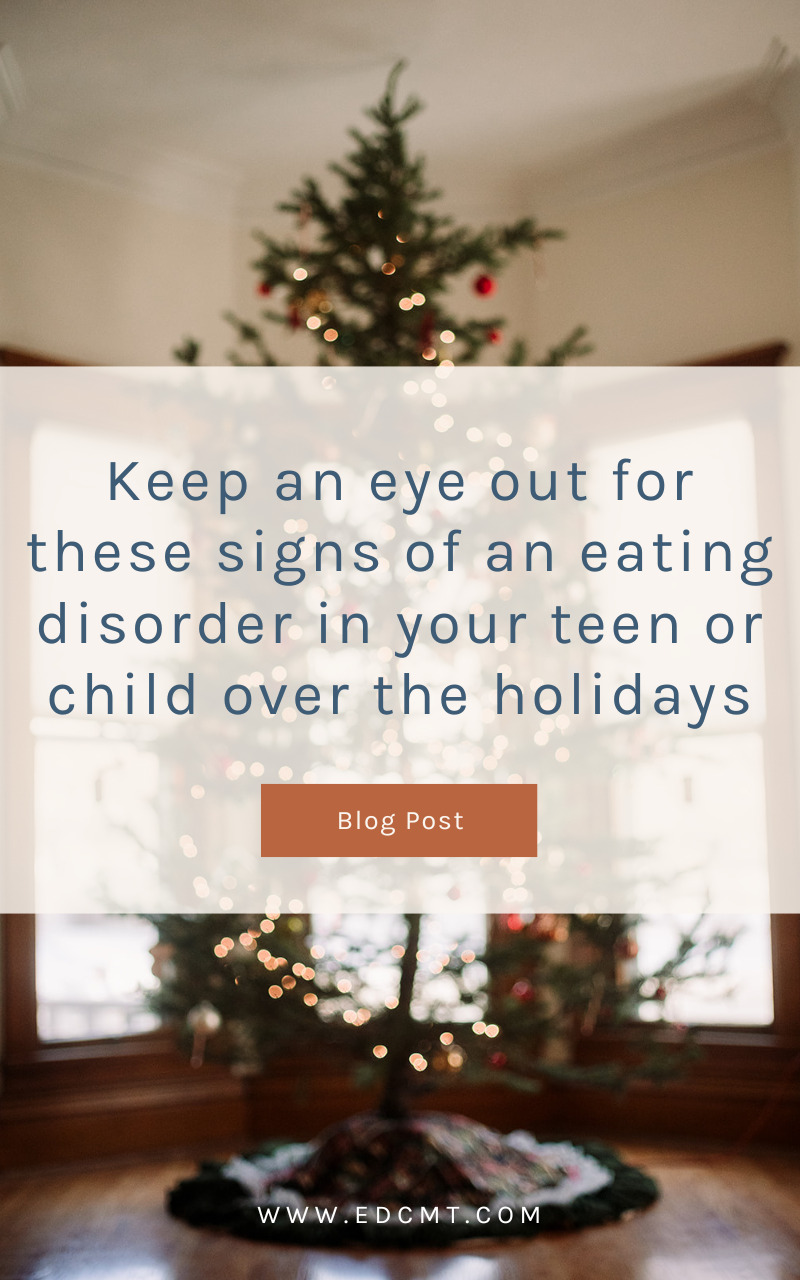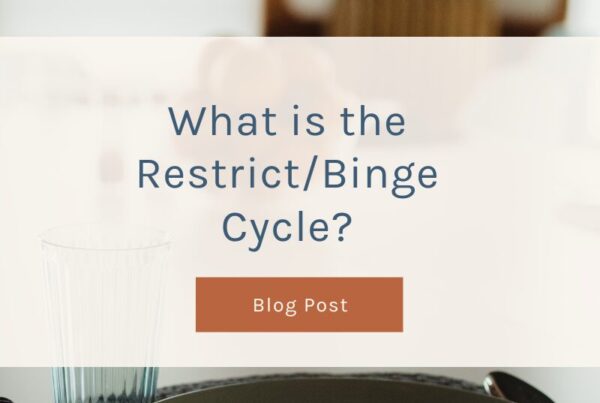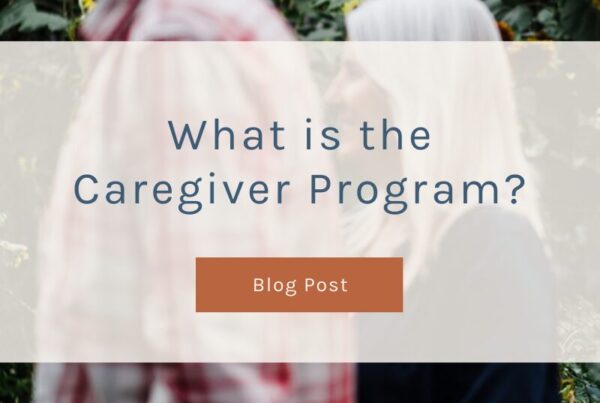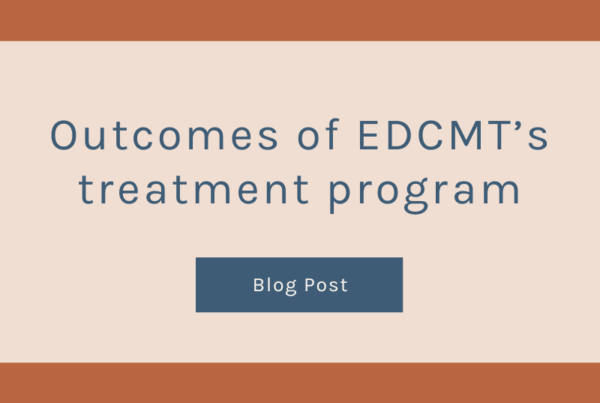
This holiday season you might have a chance to spend more time with your teen or young adult child than usual. If they have been busy with extra-curriculars, hanging out with friends, or away at school, this is the time of year to come back together as a family to make memories, and celebrate traditions. It can also be a good time to check in on your teen or young adult to make sure that their mental health is in a good place.
At the Eating Disorder Center of Montana, we encourage families to keep an eye out for a few eating disorder signs that might indicate that it’s time for your child to seek some additional support from a mental health therapist, doctor, or eating disorder-educated dietitian.
Expressing disgust with their body
Unfortunately, thanks to the prevalence of diet culture, it’s all too common for us to talk negatively about ourselves. For teens, this might look like outright disgust with certain parts of their bodies, or not feeling comfortable in their clothes, combined with other behaviors.
Withdrawing from social activities they used to love or from social events that involve food
It can be normal for teens to not want to spend time with family, but if they are spending all their time in their rooms, not interacting with friends or siblings, or not going to hang out with friends when food is being served, definitely pay attention.
Control of food
Control of food can look like a lot of different things. It could look like cooking for others but not eating themselves (especially baking or cooking traditionally “unhealthy” foods), wanting to control all the food offerings or needing to make “healthy” versions of comfort foods. If you notice your child controlling their food or others, take note.
Dieting
Dieting or even mentioning any specific dieting trends or food fads that they are interested in trying. Labeling foods as “good” or “bad”, doing juice cleanses or “detoxes”, or generally focusing on diet culture. Especially if it is causing them to miss out on things they used to enjoy, or if they are cutting out whole food groups (sugar, carbs, fats, etc).
Exercising to “burn off” calories or to earn food
Running the Turkey Trot or a Christmas Run can be a fun community activity, but if your child starts talking about needing to exercise to earn their dinner, exercising multiple times a day, or not being able to take a day off, they might need some support.
Changes in mood, irritability
Not eating enough can have huge impacts on our mood! If your child is moody beyond the typical teen grouchiness, along with other signs listed here, that might be a sign of an eating disorder.
Wearing baggy clothes or hiding their body
If your teen’s body is changing due to an eating disorder, they might want to draw attention away from or hide the changes.
Weight fluctuations, either up or down
Any significant fluctuations in weight over the course of several months could be an indication of disordered eating, in combination with other food related behaviors. Remember that not everyone loses weight when they are restricting their eating.
The holidays are a great time to keep an eye on your child and check in with them to see if they need some additional mental health support in the new year. If one or more of these signs resonate with you, consider reaching out to an eating disorder treatment center or chatting with your child about the options that are out there for them.




